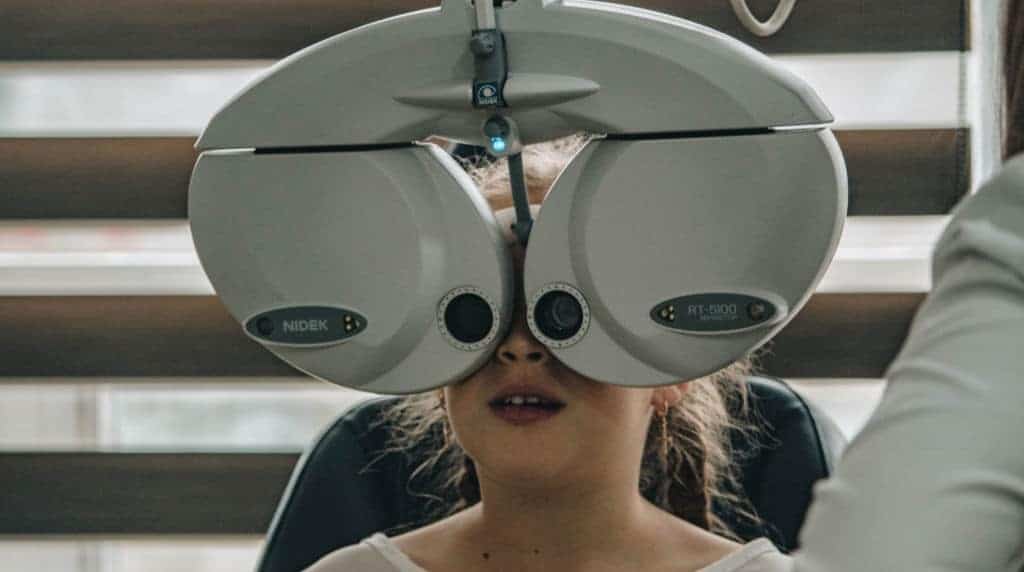Your eyes allow you to see the beauty of nature and to behold the faces of your loved ones. Without your peepers, life would be boring in a dark and depressing world. If your vision has always been pristine, then you might be quite concerned when you wake up with blurry vision.
Many different things can cause your vision to be disturbed. While most of these issues are mild, some things are cause for alarm. Here are the most common reasons for blurry vision.
14 Things That May Cause Your Blurry Vision
1. High Blood Glucose Levels
Many people don’t check their blood sugar levels regularly, as there is no need to do so. However, blurred vision is one of the first signs that there is a problem in your body. When your sugar levels rise above 140 mg/dL, the body suffers damage.
For some reason, the optic nerve seems to be one that is profoundly affected by the increase of sugar in the blood. If you wake up with distorted vision, then you should check your blood sugar levels to make sure they are at an appropriate level.
2. Pink Eye or Conjunctivitis
Pink eye is a prevalent condition that causes your eye to be red and inflamed. Bacteria enters the eye and causes an infection that you cannot ignore. An eye infected with conjunctivitis is painful, itchy, and has the hallmark red inflammation.
This condition is highly contagious, and it can spread around a family or group of friends quickly. The inflammation affects the conjunctiva area of the eye, which can cause the vision to be blurred. There are more than three million cases of pink eye diagnosed each year in the United States, so it’s a widespread ailment.
3. Glaucoma
Glaucoma is another common condition in the US, and ophthalmologists diagnose 2.7 million cases each year. It mostly affects people over 50 years of age. Pressure builds up inside the eye and causes the optic nerve to have extreme strain. The pressure on this vital nerve causes blurred vision.
While there is no known cure for this condition, it can be alleviated through medication and surgical procedures. Vision loss with glaucoma cannot be reversed; however, there are many methods to help preserve the vision you have left.
4. Cataracts
Cataracts are small pieces of skin that grow over the lens of the eye. As this piece of skin begins to grow and cover the field of sight, blurry vision and trouble seeing are commonplace. Many people state that having a cataract is like looking through frosted glass or a foggy window.
While they still can make out the person in front of them, they will often have a hard time defining facial features. Cataracts don’t cause any permanent damage as they can easily be removed. It’s prevalent to develop these in one or both eyes as a person begins to age. The most affected people are those over 60 years of age.
5. Iritis
Iritis is an infection that develops around the ring surrounding your pupil, which is called the iris. The iris has an essential function in the eye as it filters the light in and out. When this area is affected by inflammation, then blurry vision can occur.
If Iritis is not treated promptly, it can cause severe complications, which include glaucoma and cataracts. This condition can be quite challenging to handle as the light cannot properly filter the sun; thus, sunglasses are required when going outside. Thankfully, Iritis can quickly be cleared up in a matter of days. Due to the light not filtering correctly, visual disturbances are commonplace.
6. Oxygen Deprivation
Many people sleep in their contact lenses. Though some manufacturers state that their lenses are safe for this activity, it’s always best to remove them at night. Having a thin piece of plastic over the eye for extended periods can cause dry eyes and oxygen deprivation.
Additionally, dirty contacts are known to cause inflammatory conditions like Iritis too. If you are sleeping in your contacts and waking up with blurry vision, it could be that your eye is being deprived of oxygen, and you need to remove them at night.
7. Dry Eye
Dry eye is a miserable condition that can occur for many reasons. As you age, some people cannot produce enough natural tears. Chronic dry eye is a harsh condition to deal with, but it’s easily treated with moisturizing drops.
The eye requires lubrication of all parts to function correctly, which is why a person with a dry eye condition might experience mild visual disturbances. It’s essential to see a doctor to determine the cause of this nagging medical problem. Most commonly, sinus issues are to blame.
8. Macular Degeneration
Few eye conditions are as scary as macular degeneration. The visual disturbances that come with this condition are not reversible. Though there have been great strides made in the past few years to understand and treat this condition, it still is a problematic visual problem.
Blurry vision caused by MD is scary because it’s only the start of vision loss. MD occurs when the retina wears down and disturbs the field of view. This condition is mostly age-related and occurs in people over 60 years of age, but it can happen to younger folks too.
The first methods of treatment involve vitamins, laser therapy, medications, and vision aids, but there is nothing that can replace the vision once it’s been lost. Most people don’t even realize that they have this condition until their vision is greatly disturbed.
 9. Detached Retina
9. Detached Retina
The retina sits at the back of the eye. It takes the light filtered to the eye and turns it into images you can see. If the retina detaches from the eye, blurred vision or complete loss of sight is common.
It’s considered a medical emergency, and there are less than 200,000 cases in this country each year. Surgery is the only way to fix this condition, and time is of the essence. A retina will detach most commonly from trauma, but it can happen for many other reasons, including genetics too.
10. You Need Glasses
One of the most benign reasons for blurry vision is that you need glasses. If you can’t see far away, then you are considered nearsighted. If you can’t see up close, then you are deemed farsighted.
Vision changes occur naturally as part of the aging process, or the need for glasses can be hereditary too. It’s essential to have routine eye examinations to see if glasses are needed to avoid unnecessary eye strain.
11. Retinitis Pigmentosa
Retinitis Pigmentosa or RP is a severe genetic disease that causes blindness. The retina or light filtering part of the eye fails to function. The first signs of this condition are blurry vision or other disturbances in the visual field.
There is no cure for RP, but if it’s discovered early, then measures can be done to restore blood flow to the retina. However, this condition almost always leads to complete blindness.
12. Migraines
Migraine headaches affect the visual field by putting pressure in and around the eye area. These headaches often put a person out of commission until it passes. Though sufferers describe these as quite painful occurrences, they seldom require medical treatment.
Many people find themselves sitting in a dark room until the pain has passed. Blurry vision, flashing lights, and other auras are often the first signs that one of these headaches is starting.
13. Extreme Anxiety
Most people wouldn’t dream that their stress levels could affect their vision, but it can. When you have high anxiety, your body is in fight or flight mode. Higher than normal levels of adrenaline can affect how your eyes respond to light.
It can cause your pupils to remain dilated unnecessarily, which lets in too much light in the wrong situations. You can have blurry vision when you’re stress levels are off the charts. It’s hard to fathom that the eyes could feel such a response to stress, but this is just another reason why managing such conditions is essential.
Thankfully, this is a common problem that doesn’t cause any permanent damage.
14. Uveitis
Uveitis causes blurred vision, dryness, and inflammation of the eye. This is an auto-immune disorder that is limited to this area of the body. Though this is an uncommon condition, it can cause significant damage.
If the inflammation is in the front of the eye, then it will cause pain with light sensitivity. If the infection is in the back of the eye, then it will cause flashing lights and floaters. The most common treatment for this condition is antibiotics.
However, since it’s an auto-immune issue, a system modulator may be used for ongoing treatment.
 Final Thoughts on Dealing With Blurry Vision
Final Thoughts on Dealing With Blurry Vision
Dealing with any visual disturbances is terrifying. It’s essential to see a doctor right away at the sign of any problem. Thankfully, most of these conditions mentioned can be treated without permanent vision loss. Unfortunately, some will cause blindness that cannot be reversed. It’s essential to have an annual eye examination to identify issues that can be treated before they destroy your precious vision.















 Community
Community

